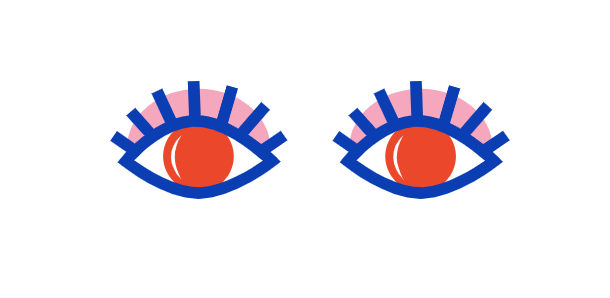Let’s address what’s worrying us first.
We want answers and we still don’t have them all. We know the corona virus is spreading really fast, but we still don’t have enough medical information about it. There is a lack of political guidance, we know the economic outlook is not positive, we might need to stay at home for a while, and we’re inundated with conflicting information from the media and social media. We’ve lost control of many aspects of our lives, so we worry. And we’re all worrying.
97% of our worries never become a reality.
We enter into an endless spiral of “what ifs”, and that starts building up anxiety. We might not notice it during the first few days, but slowly our sleep patterns change, our eating habits shift, and we start experiencing negative thoughts and cynicism a little more often.
Here’s how to hack into keeping a positive state of mind.
Protecting your mental health should also be at the top of your list. Here is how you can boost your positivity by tapping into your brain’s neurochemicals associated with happiness.
- Boost your dopamine more often. Be extra intentional about breaking your goals into small achievable milestones (especially while you work from home and are in isolation). Then celebrate the goals you’ve achieved every day. Dopamine is associated with our motivation to keep ourselves on track, be proactive, and eliminate self-doubt. Counteract the negative effects of anxiety by being present in the moment, set very small goals, and then make them all happen. Momentum stimulates dopamine creation.
- Work on increasing your serotonin levels. When serotonin goes lower, symptoms of loneliness and depression start to appear. Staying in isolation can increase these risks, so balance your worries with focusing on positive memories, past victories, and practice gratitude. The brain doesn’t differentiate from what’s imagined versus real, so reliving past positive memories and being thankful can produce significant serotonin levels. Vitamin D is also an important contributor to serotonin, so consider a 15-min walk outside every day.
- Wake up your cuddle hormone. Oxytocin has also been referred to as the cuddle hormone because it’s key to maintaining healthy relationships. The biggest release of this hormone happens during an orgasm or when mothers are breastfeeding. Hugs, gifts, and acts of appreciation also help with Oxytocin release (which can also happen online while working remotely). In addition to improving cardiovascular stress, Oxytocin also helps boost our immune system. If you’re deprived from in-terpersonal touch these days, plan online dates with your friends or other special people in your life.
- Focus on endorphin-releasing activities. These include exercising, eating chocolate, drinking wine, sexual activities, practicing yoga or meditation, and laughing. Endorphins help you cope with pain and counteract negative thoughts. Laughter is perhaps the easiest way to ensure a frequent release of endorphins and, even in times of worriness, you can always find some humor or work on bringing some humor into regular conversations. New studies also show that essential scented oils can also help.
- Limit your exposure to the news to twice per day. It’s still important to be informed but we don’t need to be faced with scary facts all day long. Make sure you control when you access the news and you curate your sources. And the rest of the time keep your four happiness hormones in check!
- Share your vulnerability. Remember that you’re not alone. Talk to your friends, colleagues, or online communities about your fears and share your worries. Some of the unsettling feelings may be just starting to develop, but the sooner we let them out the better. Sharing what’s on our minds reduces the feeling of loneliness, and therefore anxiety and depression. If you don’t know where to go, you can try this new group sharing experiences about fighting burnout.

If you’re already suffering from frequent anxiety episodes, Generalized Anxiety Disorder (GAD), severe burnout, depression, addictions, any other mental health condition, you need to be extra careful and also consult a professional if your symptoms start getting worse.
In times of insanity, prioritize your own sanity.


